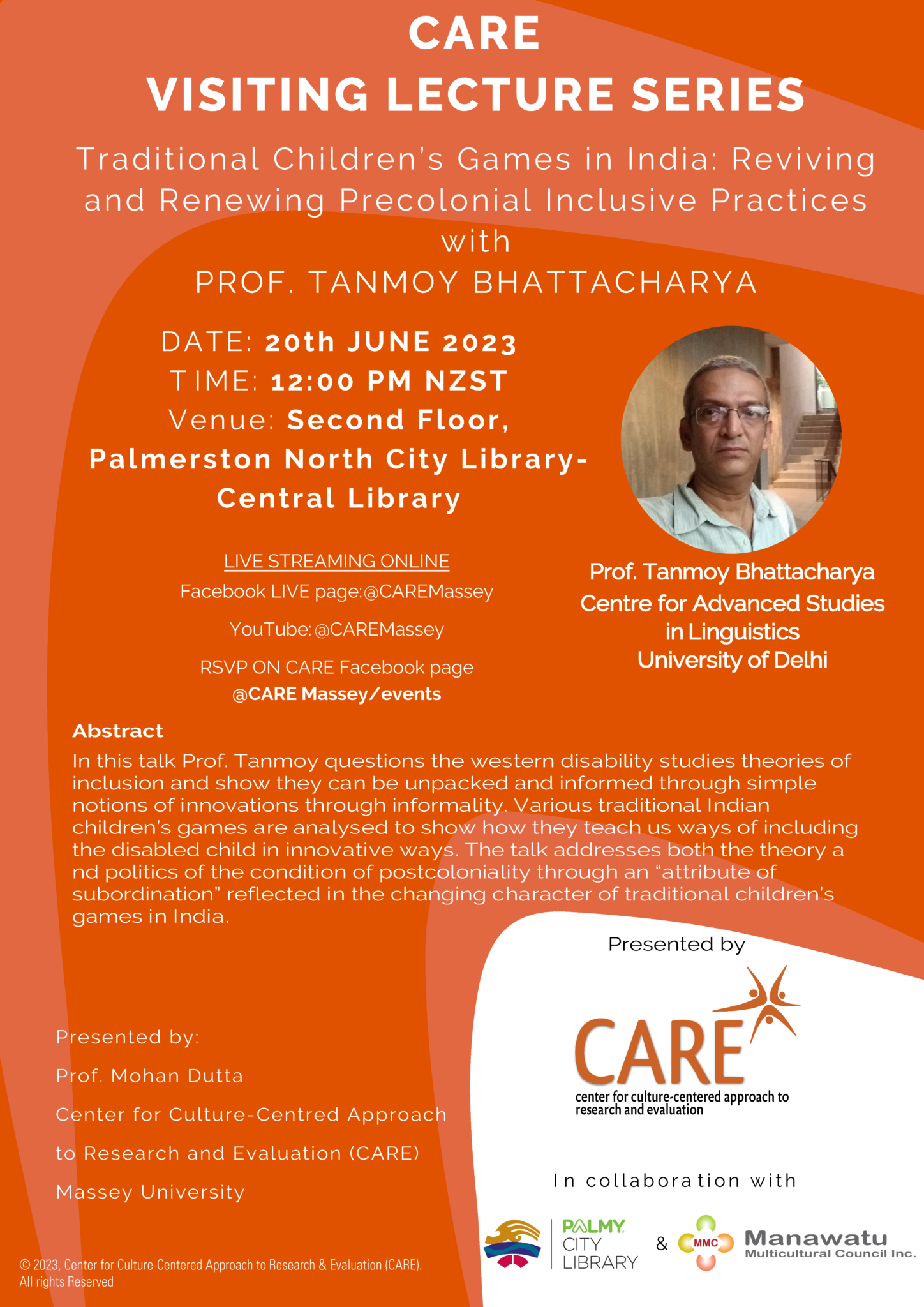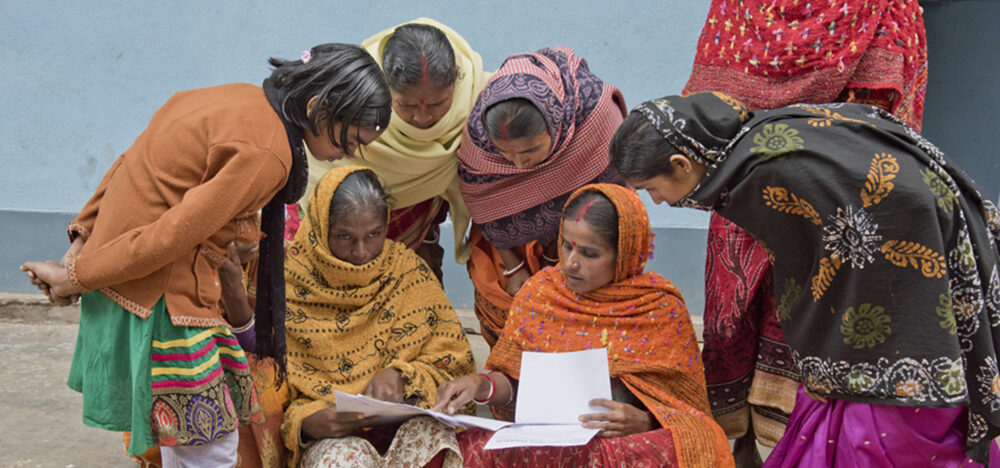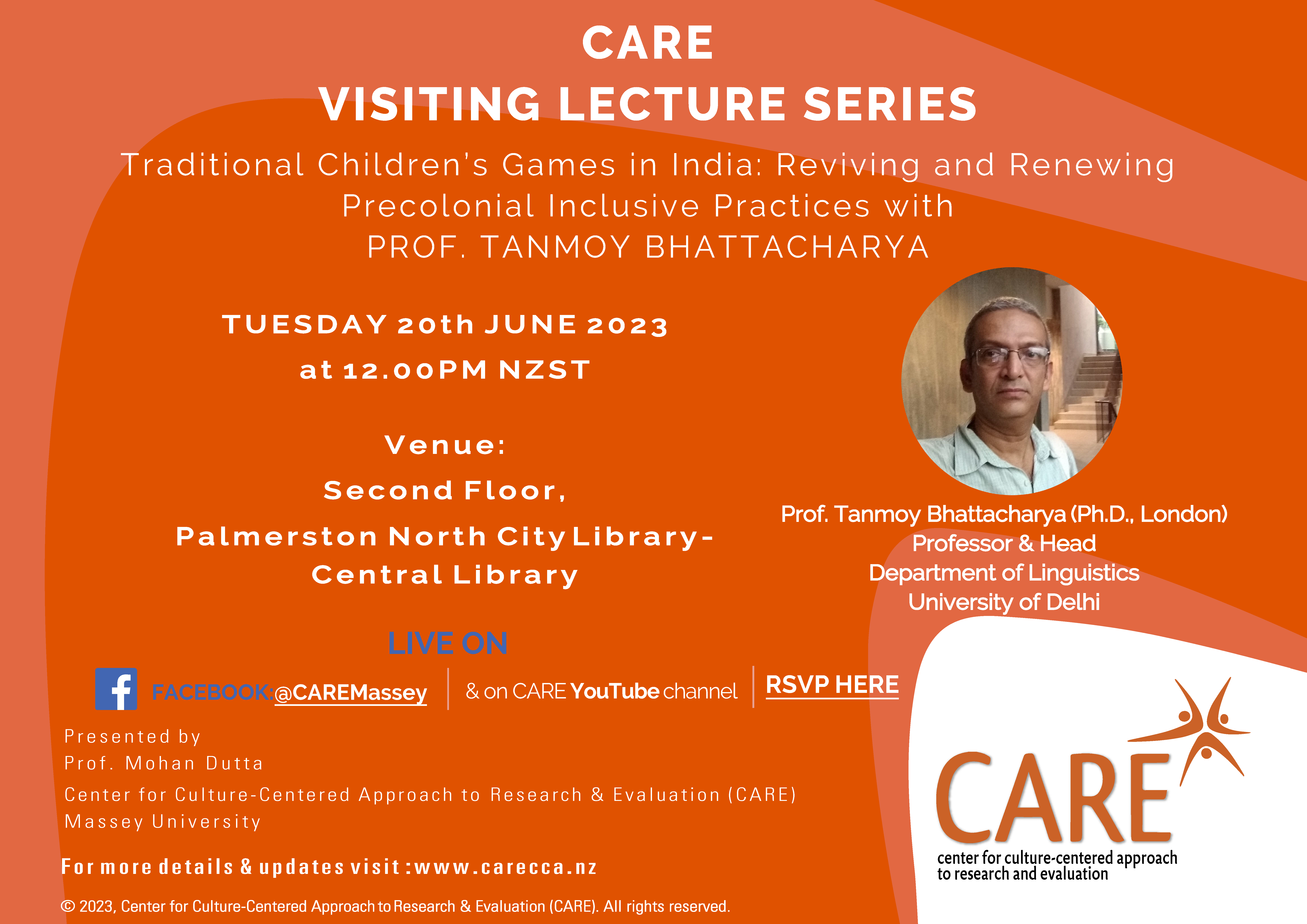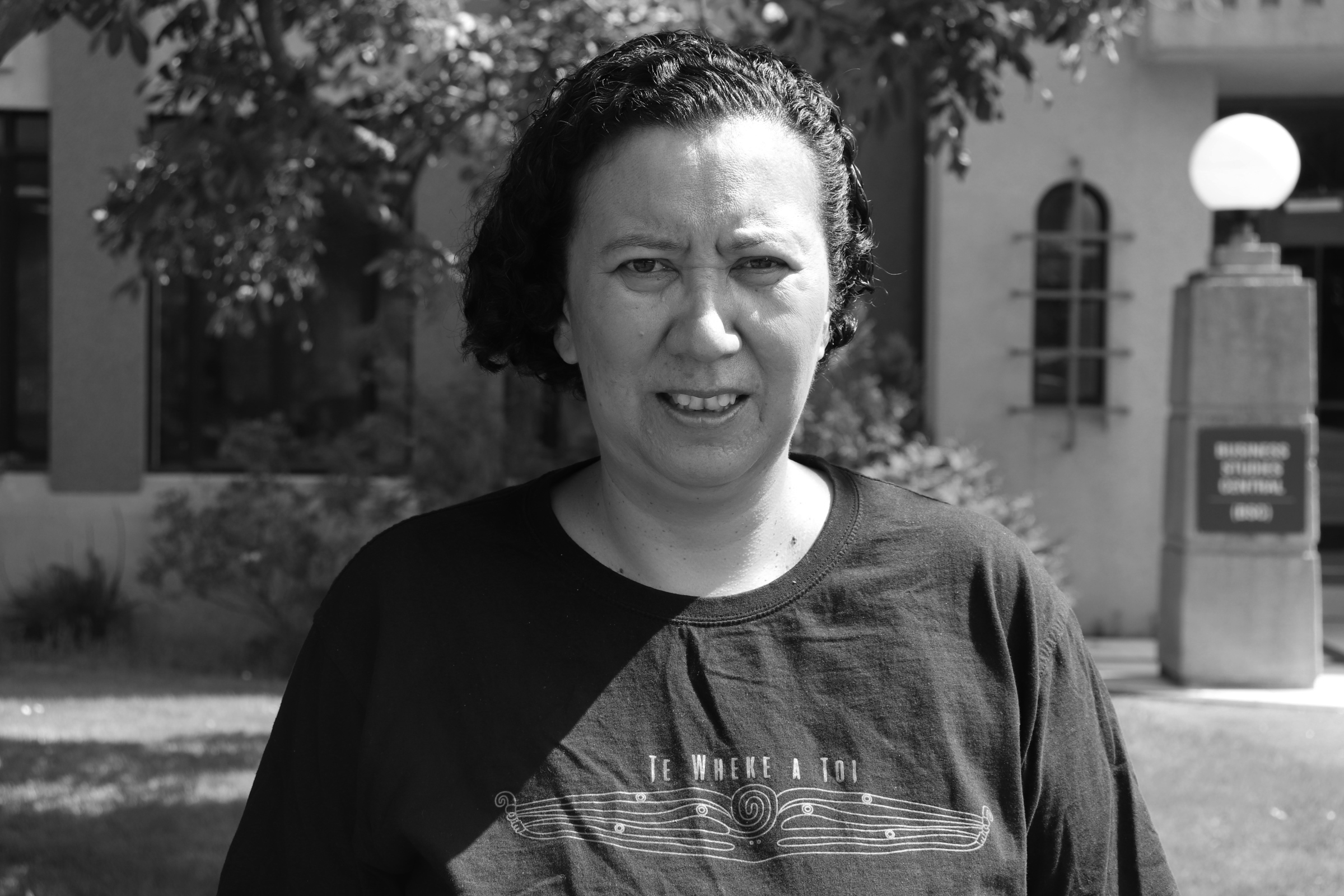CARE proudly welcomes Prof. Tanmoy Bhattacharya, Head Department of Linguistics, University of Delhi, as CARE ‘s visiting academic for the month of June 2023.
CARE extends a warm invite to all to join Prof. Tanmoy Bhattacharya’s lecture on Traditional Children’s Games in India: Reviving and Renewing Precolonial Inclusive Practices scheduled on 20th June 2023 in Manawatu in collaboration with Palmerston North City Library & Manawatu Multicultural Council (MMC)

See event details below:
CARE VISITING LECTURE SERIES: Traditional Children’s Games in India: Reviving and Renewing Precolonial Inclusive Practices with Prof. Tanmoy Bhattacharya, University of Delhi
Talk Abstract
Traditional Children’s Games in India: Reviving and Renewing Precolonial Inclusive Practices
In this talk I question the western disability studies theories of inclusion and show they can be unpacked and informed through simple notions of innovations through informality. Various traditional Indian children’s games are analysed to show how they teach us ways of including the disabled child in innovative ways. The talk addresses both the theory and politics of the condition of postcoloniality through an “attribute of subordination” reflected in the changing character of traditional children’s games in India.
DATE: 20th JUNE 2023 | TIME: 12:00 PM NZST
Venue: Second Floor, Palmerston North City Library-Central Library
A detailed Bio of Tanmoy Bhattacharya
Tanmoy Bhattacharya is Professor and Head of the Department of Linguistics, University of Delhi. He guides research on Syntax, Psycholinguistics, Gender, Disability, Deaf Education, and Sign Linguistics. Prof. Bhattacharya completed his B.A. (Chemistry) & M.A. (Linguistics) from DU (University of Delhi), and then went to complete his first Ph.D. in Linguistics from the University of Hyderabad (1995), and the second Ph.D. from University College London (UCL) as a Commonwealth scholar (1999).He has held research & academic positions at School of Oriental and African Studies (SOAS, University of London, UK), Universität Leipzig (Germany), University College London (UCL, England), M. S. University (Baroda), and University of Hyderabad (UoH, Hyderabad). In his doctoral work, he tried to explore both big and small constructions in natural language, with the investigations confirming the Chomskyan universal grammar project of the generative enterprise. In the domain of syntax, he has carried out extensive and original research on topics such as NP structures, WH-constructions, superiority, sluicing, clause-internal complementizers and polar questions in a number of Indo-Aryan and Tibeto-Burman languages. His most recent work has been on the topic of agreement in which he has brought to the fore the importance of many languages of Bihar (for example, Maithili, Magahi and Angika, among others), Jharkahand, Odisha (languages such as Santhali, Kurmali), Mizoram (namely, Mara) and Nepal (viz. Bantawa) in forming a sprachbund of multiple agreement comprising a vast chunk of the Himalayan foothills, the East, and Northeast of India.
He has been the member-convener of an UGC Committee on Disability and Higher Education and the Coordinator of the Equal Opportunity Cell, University of Delhi, where he has taught Disability and Human Rights. He is the Chairperson, Expert Committee on development of training program on Indian Sign Language, Rehabilitation Council India. Within the field of disability, he specialises in Disability Studies, Deaf Education, and Inclusive Education.
Apart from 87 journal papers/ book chapters, Prof. Bhattacharya has been the editor/ co-editor of four books published from Mouton, John Benjamins and Orient Blackswan. He has delivered 220 invited/ conference talks till date at different conferences/ events. He has been the chief editor of Indian Linguistics (2015-2017). He is an Associate Editor of the peer-reviewed international journal Linguistic Variation, published from John Benjamins Publishing, and is one the Chief Editors of the journal Indian Journal of Critical Disability Studies.
More recently, with the desire to bring linguistics and related technology closer to popular science, he has been involved in writing on migration and evolution through an essay series on ‘Peopling of the Northeast of India’ and ‘Being Human, Again’ (published since 2016). This has led his technical expertise in linguistics to also bear upon the question of ‘peopling’ by looking at the linguistic evidence along with the genetic and archaeological.
LIVE STREAMING ONLINE
Facebook LIVE page: @CAREMassey
Link: https://www.facebook.com/events/225044887004995
YouTube: @CAREMassey
Link: https://www.youtube.com/watch?v=i-U4ec_tpxw
RSVP ON CARE Facebook page : @CARE Massey/events
Link: https://www.facebook.com/events/225044887004995
#Aotearoa, #CareCCA, #CareMassey, #CareMasseyNZ, #CAREVisitingLectureSeries, #MasseyUni, #NewZealand


